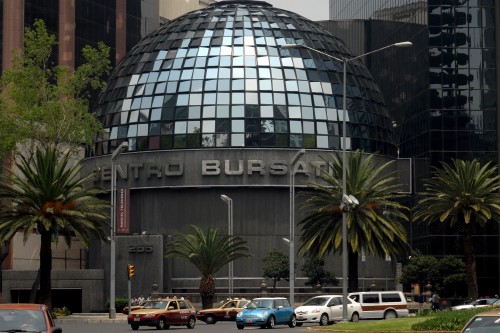US stock futures and global stock markets, including shares of Asian and European automakers, tumbled Friday after President Donald Trump said the United States will impose a 5% tariff on all Mexican imports.Japan’s Nikkei (N225) slumped 1.6%, while South Korea’s KOSPI (KOSPI) was mostly flat. Markets in Europe also opened lower. Britain’s FTSE 100 index fell 0.8%. Stocks in Germany shed 1.3%, and in France they dipped 1%.
Stock futures indicated that those losses would extend to the United States. The Dow is poised to fall 230 points, or 0.9%, when markets open. The S&P 500 is tracking similar losses, while the Nasdaq could drop 1.1%. Mexico is one of America’s biggest trading partners and many US companies — including Ford (F) and Walmart (WMT) — rely on the country as a central part of their supply chains.
Walmart declined to comment Thursday, May 30th. The country is also a regional manufacturing hub for Japanese, South Korean and German automakers that assemble cars in Mexico and ship many of them to the United States.Shares in Mazda (MZDAF) and plunged more than 7%, while losses for Toyota (TM), Honda (HMC), Nissan (NSANF) and Volkswagen reached 3% or more. Trump tweeted that the tariffs on Mexico would take effect on June 10 and remain in place until “illegal migrants coming through Mexico, and into our Country, STOP.”Trump, who has called himself “Tariff Man,” warned that the tariff will increase until “the illegal immigration problem is remedied.”
The White House indicated the tariff would increase to 10% on July 1 if Mexico does not comply. If the country continues to not act, the White House said, the tariff will increase to 15% on August 1, 20% on September 1 and 25% on October 1. “Tariffs will permanently remain at the 25 percent level unless and until Mexico substantially stops the illegal inflow of aliens coming through its territory,” the White House said.
The threat sent the Mexican peso plunging about 2% against the US dollar. Goldman Sachs said the tariffs on Mexico are likely to go into effect and warned they would be “highly disruptive.” The bank added that implementing the tariffs would cast doubt on the enactment of the new United States-Mexico-Canada Agreement (USMCA) prior to the 2020 election. The broadside comes at a delicate time in global financial markets.

